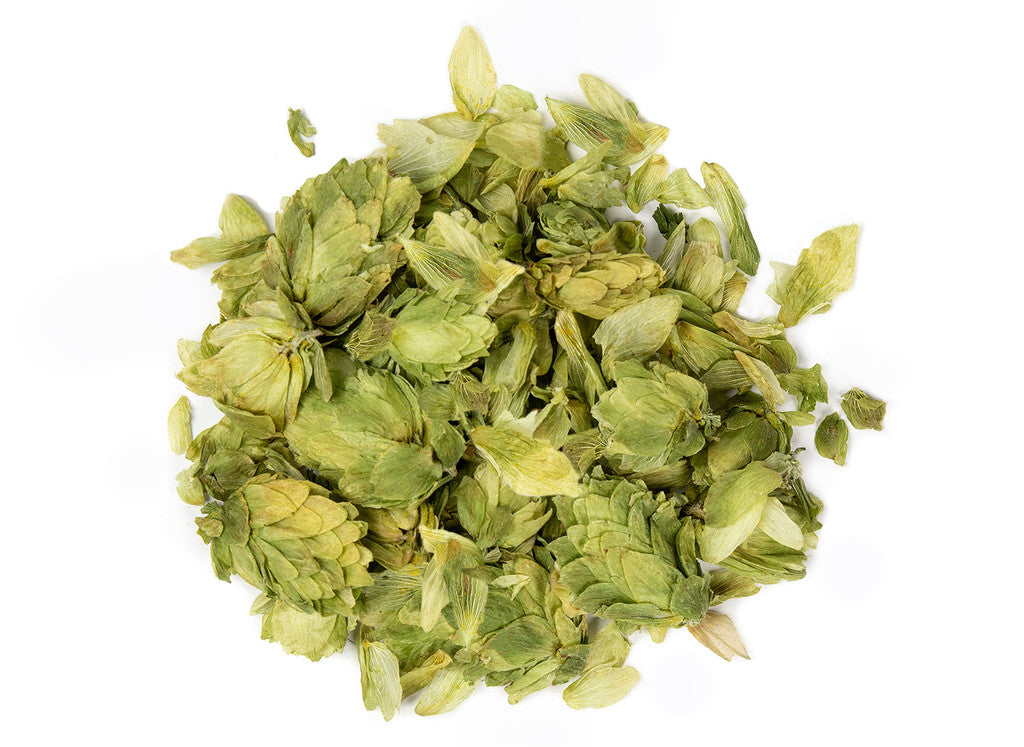Bulk
Hops - 1 oz
Hops - 1 oz
Couldn't load pickup availability
The herbaceous perennial Humulus lupulus is a climbing plant native to Europe, western Asia, and North America. It has distinctive flower cones, or strobiles, that are referred to as hops. Hops flowers are known for their aromatic and bitter qualities. This has made them a preferred ingredient in brewing, with many microbrews showcasing specific varietals for their unique taste profiles. However, hops have long been used in traditional Western herbalism for their beneficial properties. The hops flower is a gentle nervine when steeped in infusions or tinctured. The flowers can also be added to dream pillows or cosmetic formulations.
A "hop" is a green cone around the female flower of the hop plant. Inside the hops are golden grains that form a sticky greenish yellow to orange yellow powder. Hops have been used for centuries to flavor beer, at least as far back as 10,000 years ago in Asia, where it spread rapidly to Eastern Europe. The lore of hops and beer is intertwined. The Sumerians goddess Ninkasi was the goddess of brewing and beer, and head brewer to the gods. The Romans said that hops grew "wild among the willows, like wolves among sheep", hence the name Lupulus.
The first mention of hops in European literature was in 1079 by Abbess Hildegarde of St. Ruprechtsberg who said that "if one intends to make beer from oats, it is prepared with hops". There is also evidence that they have been used even longer to aid sleep and to reduce libido. This should not come as any surprise as hops are a distant relative of stinging nettles and cannabis. As most of the brewing of beer was done during the middle ages by monks, there are innumerable mentions to hops and hops gardens in monastic literature. In fifteenth-century Germany, monks prescribed teas of hops to young males to help them remain chaste. The hop plant belongs to the Cannabaceae family.
Hops promotes healthy relaxation and sleep.*
Precautions
No known precautions. We recommend that you consult with a qualified healthcare practitioner before using herbal products, particularly if you are pregnant, nursing, or on any medications.
Share

